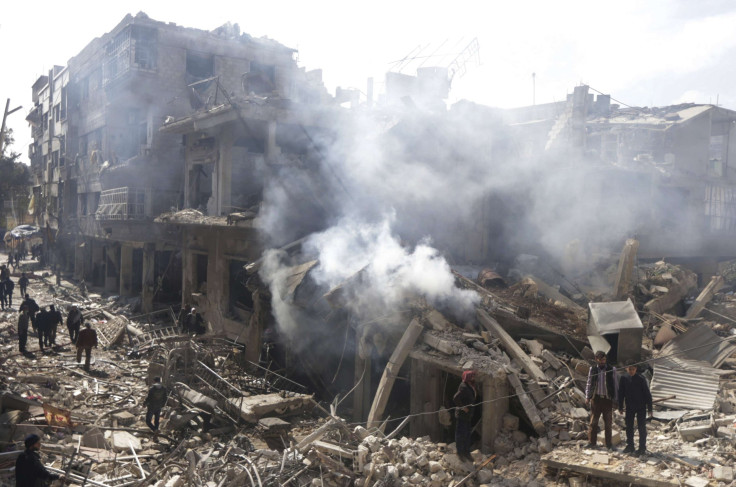Syria's Southern Battleground: Iranian, Iraqi and Afghan Militias Vs. Rebels

Syria's south is becoming the new battleground between forces loyal to President Bashar Assad and the rebels, and the regime is relying more and more on foreign militias to hold back its enemies. Over the past several weeks, rebels have ramped up their attacks on Damascus and its suburbs in an attempt to finally break through the defenses protecting the capital. And in an effort to thwart the rebels, Assad has enlisted Iranian, Iraqi and Afghan militias to help protect the one area where the regime still has a strong foothold.
Foreign militias have existed in Syria since the civil war began in 2011, but they are now more important than ever because they are essential to stopping the rebel advance on Damascus. According to the Syrian Observatory for Human Rights, forces loyal to Assad fought their “fiercest battle yet” against the rebels. The Iranian-backed foreign militias in Damascus are now being pulled to the frontlines in places such as Douma, on the outskirts of the capital, where more than 150 civilians have been killed in the last 10 days.
Last week, Syrian rebels, some carrying weapons supplied by the U.S., gained ground around Damascus in what marked a rare success for moderate rebels who do not have an agenda of radical Sunni Islamism. The attacks on the capital were led by a faction that is a part of a larger group which has recently gained ground in Aleppo, Syria's biggest city and economic capital, and absorbed other rebel groups.
The militants backed by Iran's Shiite regime, the sectarian ally of Assad's government, come from various parts of the Muslim world, including Iraq, Afghanistan and Lebanon. Militants are paid about $500 a month, a relatively high salary, to fight for Assad in Syria. They are heavily armed and well trained, and are causing problems for the poorly equipped rebels.
According to the Syrian Observatory for Human Rights, those forces, backed by Hezbollah, Iran's Lebanese ally, “have made significant progress” in the border regions near Jordan and the Golan Heights occupied by Israel. As a result, moderate rebels are now calling for support from an unlikely quarter: Israel.
"Regime troops and their Hezbollah-led allies are advancing in the area linking Deraa, Quneitra and Damascus provinces," close to the Golan Heights, the Syrian Observatory for Human Rights said. Rebels then called on Israel to bomb Hezbollah-backed forces.
The Israeli air force has already conducted airstrikes in the area, targeting Hezbollah members, but not in response to calls for support from Syrian factions. In the meantime, Assad's air force is supporting the pro-regime militias. The Syrian Observatory for Human Rights said the regime has conducted more than 650 airstrikes across the country so far this month. And in the past two weeks, Assad's military has increased its use of barrel bombs around the capital, killing dozens of civilians. The recent violence in Damascus has brought the total death toll in the country to about 210,000 since the beginning of the war four years ago, the Observatory said.
© Copyright IBTimes 2024. All rights reserved.











